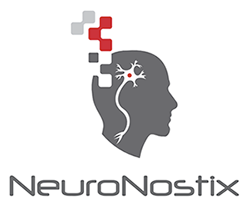UNC research team advances in national competition
The team will develop a business plan to market their diagnostic tool for schizophrenia

A team of UNC graduate students is entering the final phase of a competition to create a startup based on innovations in neuroscience.
The UNC team's project, NeuroNostix, is a diagnostic tool for determining personalized treatment plans for patients suffering from schizophrenia, a mental disorder associated with an impaired perception of reality.
The team will be one of 13 moving on to phase three of the challenge, in which they will attempt to get licensed and receive funding to launch a business based on their research. In total, 578 students and entrepreneurs, forming 70 teams, entered the challenge.
The competition, Neuro Startup Challenge, is a competition designed to bring promising medical inventions to market. Teams are chosen based on their financial models, live pitches and business plans.
UNC's team is made up of four students from the University's Graduate Certificate in Technology Commercialization and Entrepreneurship program: Colleen O’Neil, Anthony Arceci, Jeremy Ford and Soo Kim.
The team has developed a molecule with less side effects than current schizophrenia drugs, but it is in the infant stages. The team will work to make it into a marketable drug.
“So we have decided based on the characteristics of the molecule: it is really unique, really interesting and has a strong potential to make a really good drug,” O’Neil said.
Ford said the team's greatest asset was their diverse backgrounds.
"It’s clear that if you wanted to win the competition, you had to have a well-rounded team, and that’s what we were — a well-rounded team,” Ford said. "We had someone from chemistry, someone from molecular biology, someone doing molecular pharmaceutics in the pharmacy school; myself — I’m in the med school and the business school."
The team formed during a UNC class on commercializing technology, taught by Don Rose and Jason Doherty. The class was structured for students interested in this competition.
During the first semester, the teams developed the technology for the challenge and worked on their pitches. In the second semester, the teams developed a business plan.
Doherty, the director of UNC’s Startup Consulting program, said he hopes the challenge will both educate students and bring new ideas to market.
Doherty said he hopes to accomplish two things.
"One, education and training of students who are interested in entrepreneurship and innovation to understand the process of translating University research into marketable products,” Doherty said. “And on the other side directly supporting the faculty, students and staff who are developing high-impact technologies and are interested in forming startups as a vehicle for commercialization of their ideas.”
O'Neil said participating in the challenge has created the opportunity for the team to turn their pitch into a marketable product.
“It’s culminated in actually winning the challenge and having to start the business around the technology,” O’Neil said.
The team now has to hire companies to complete the extra testing they need to see if it could be a viable schizophrenia drug.
Article originally posted at Daily Tarheel
- Created on .